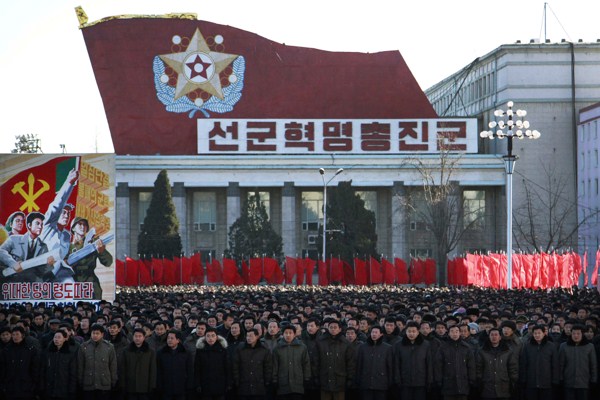The launch of five short-range missiles from North Korea’s east coast earlier this month threw icy water on some recent and uncharacteristically positive media coverage of Kim Jong Un’s regime. Reports of tentative discussions with U.S. officials about the possibility of jumpstarting nuclear talks, combined with the supposed mid-2015 rollout of additional Chinese-style economic reforms contained in the so-called May 30th Measures announced last year, suggested that significant shifts could be in the cards in Pyongyang. But the missile launch highlights the ways in which North Korea’s room for maneuver, especially on the economic front, will continue to be constrained by its inability to improve relations with old foes.
To be sure, Kim has instituted some economic modifications, some of which had their roots under his father, Kim Jong Il, and more cannot be ruled out. However, circumspection is warranted, as the end product is unlikely to be as impressive as the rhetoric. Thus far, the younger Kim’s rule has been riven with contradictions, and this shows no sign of letting up in the coming years.
In the three years before his death in December 2011, former leader Kim Jong Il set out to improve livelihoods as a way to boost his son and heir’s popularity with the North Korean public, thereby ensuring the planned transfer of power. A policy shift ensued, beginning with an economically ruinous currency reform measure in November 2009 that initially soured public trust and drove ordinary citizens into holding assets in hard currency. Since then, however, it has come to include business opportunities for the well-connected in natural resource extraction and transport logistics, the creation of a number of special economic zones, and, most importantly, a laissez-faire approach to private trade in the public markets that sustain the majority of ordinary citizens.

